CodeFest Spring 2025 on classifying patent data for sustainable development
To watch the recording of the prize ceremony, skip ahead to 5:40:13.
For the third edition of EPO CodeFest, we are excited to explore how automated systems for classifying patent data can contribute to achieving the United Nations' Sustainable Development Goals (UN SDGs).
Sustainability is the core focus of Strategic Plan 2028, and the CodeFest Spring 2025 on classifying patent data for sustainable development reflects the EPO’s strong commitment to enhancing the accessibility and strategic use of patent data.
Developers and data scientists are invited to create an automated system that can serve as a valuable resource for researchers, policymakers, businesses and inventors, enabling them to leverage patent data and accelerate sustainability-driven solutions. Join us in shaping the future of sustainable innovation!
Thank you to everyone who participated in CodeFest Spring 2025! We were excited to receive 33 innovative proposals from teams and individuals across 30 countries. The Call for Proposals is now closed, but stay tuned for more information on the upcoming award ceremony and the announcement of the finalists in June!
- Prize ceremony
CodeFest Spring 2025 has challenged coders and developers residing in EPO member states to create an automated classification system that can serve as a valuable resource for researchers, policymakers, businesses and inventors so that they can leverage patent data to accelerate sustainability-driven solutions.
Eager to see who claimed the top spot? Watch the recording of the online CodeFest Spring 2025 prize ceremony, which took place on 3 July 2025 at 14.40 hrs CEST as part of the PATLIB conference. Celebrate our finalists and find out which three teams took home a CodeFest trophy and cash prize. The grand prize winner received EUR 20 000, with the first and second runner-up receiving EUR 10 000 and EUR 5 000 respectively.
- Finalists
Out of the 33 impressive CodeFest Spring 2025 proposals which advanced to the second round, we are proud to announce the 6 finalists selected by our jury of experts.
The finalists are presented in alphabetical order and this list does not reflect their ranking or placement.
Team ConfusedElectrons
The team used advanced AI to sort patents by UN SDGs, create summaries and explain why each SDG tag was chosen. Their system offers a user-friendly interface to view trends, applicant data and insights. It also allows users to explore the data using a chat bot.
Team LIPCY-UP
The team developed a system that uses a set of rules built from existing patent categories to classify patents based on their connection to the UN SDGs. They used advanced AI to help create this rule system and to build a decision tree that analyses the text of each patent to determine whether it has a positive or negative impact on society or the environment.
Team PatentEmbedders
The five-person team coded a large language model (Llama3) that understands European legislation corpus and further trained it to match pollution abatement techniques using a human-validated dataset. They added a second AI model (Claude) to improve the accuracy of the results, and included a chatbot that helps users ask questions and receive further insight.
Team SDG-Concepts
The duo focused their solution on the automatic generation of a silver standard for training and evaluating SDG classifiers. Their method compares rankings instead of using complex math comparisons and they trained their AI to handle multiple goal labels at once, making it more flexible and accurate.
Team Suma
The two person team built an AI system made up of five tools, one of which uses a custom model to connect patent categories to SDGs. They used traditional machine learning methods, added extra data for better context and used similarity checks to improve accuracy and reliability.
Vasileios Ntarlagiannis
Vasileios used a group of different AI models to identify which SDGs a patent relates to, based on the text and classification codes. These models work together using a method that helps the system determine how confident it is in its prediction.
- Winners
Over the past six months, 86 participants from 30 countries took part in CodeFest Spring 2025, submitting 33 proposals — 16 developed by teams and 17 by individual contenders.
After two rounds of evaluation, our jury of experts in IT, data science, AI and patent information shortlisted six finalists. In addition to their potential impact on innovation, the selected proposals stood out for their functionality, usability and technical merit, as well as their creative and original use of automated systems.
The winners were announced during the CodeFest prize ceremony on 3 July, held as part of the PATLIB conference.
Watch the recording of the prize ceremony
EPO CodeFest winners
Winners: Le Phuong Lan Tran, Arnab Saha, Ralph Ryan Hebrio and Mauricio Rodriguez Alas
The ConfusedElectrons team developed a system that uses advanced AI to classify patents according to the UN Sustainable Development Goals (SDGs). The tool generates summaries and explains the reasoning behind each SDG tag. It also features a user-friendly interface that allows users to explore trends, applicant data and insights, supported by a chatbot for interactive queries. ConfusedElectrons received the top prize of EUR 20 000.
The team comprises four researchers with Erasmus Mundus backgrounds, united by a shared interest in innovation and technology.
- Le Phuong Lan Tran is a researcher at TU/e Eindhoven, working on bio-integrated neuro-computing systems using organic transistors.
- Ralph Ryan Hebrio is based at the University of Montpellier, where he focuses on chip development and studies the effects of radiation on microelectronics.
- Mauricio Rodriguez Alas is a researcher at the University of Luxembourg, specialising in full stack development.
- Arnab Saha is an engineer at the University of Bordeaux with a background in hardware design and AI-driven innovation.
First runners-up: Grazia Sveva Ascione and Nicolo Tamagnone
The SDG-Concepts team proposed a solution for the automatic creation of a silver standard to train and evaluate SDG classifiers. Their approach replaces complex mathematical comparisons with a ranking-based method and enables the AI to handle multiple SDG labels simultaneously. This improves the flexibility and accuracy of the system. The team combines expertise in patents, NLP and sustainable development. As first runners-up, they received EUR 10 000.
- Grazia Sveva Ascione is an assistant professor in economics and data science at the Polytechnic University of Turin. Her research includes entity linking for patent assignees, similarity models for patents, automatic classification of assignee types and the economics of patents.
- Nicolo Tamagnone is a senior machine learning engineer at Data Friendly Space (DFS), developing ML and NLP systems for the humanitarian and development sector.
Second runners-up: Michael Mazourik and Jacques Sun
The Suma team developed an AI system consisting of five tools, including a custom model that links patent categories to SDGs. They applied traditional machine learning methods, enriched the model with additional data for better context and used similarity checks to increase accuracy and reliability. As second runners-up, they received EUR 5 000.
- Michael Anthony Mazourik holds an MSc in AI from USI/ETH and a BA in international management. He is an entrepreneur at Artificial Intelligence Suisse SA, providing services and licenses in natural language AI, prompt engineering and data science. He also contributes to open-source projects such as Ai4Privacy and AI Status Codes, which have together exceeded 1 million downloads. This is his third EPO CodeFest and second time as a finalist, having previously reached the finals in 2022.
- Jacques Sun is a machine learning researcher at Doctolib. He is completing his Master's in AI at PSL Research University, supported by an Excellence Scholarship from the PRAIRIE Institute, and holds an engineering degree from Télécom Paris.
- The coding challenge
Develop a system that automates the classification of patent data based on its potential contribution to the UN SDGs. Your solution should enhance the accessibility and strategic use of patent information, making it easier to identify innovations that drive global sustainability.
Entries can take different approaches, and you are encouraged to consider how your application can benefit users. Join us in harnessing patent data for sustainability-driven innovation!
Participants
We are calling on coders or developers aged 18 and over to submit their proposals for solutions by 23 March 2025, 23.59 hrs CET. Submissions can come from an individual person or a team of up to five people. Anyone residing in one of the EPO's member states is eligible to contribute. Teams made up of EPO staff members, external entrants or a mixture of both are all welcome!
In order to participate you must meet all eligibility criteria included in the rules of competition.
Steps
- Submit your proposal by 23 March 2025, 23.59 hrs CET. It should include:
- The completed form with your personal information. Please note that all team members must register individually and indicate if they are part of a team.
- An outline of your proposal for solving the coding challenge. Proposals must include an explanation of your suggested approach and indicate the data selection you intend to use, possible model implementation and model evaluation.
- During the first selection process, the jury will evaluate the proposals.
- On 28 March 2025, participants will be informed if their proposal has made it to the next round.
- For the second round, participants will work on executing their proposed solution and submit their code by 28 May 2025, 23.59 hrs CET.
- The jury will evaluate the final solutions.
- Finalists will be announced on 16 June 2025 and the winners will receive their prizes at a virtual prize ceremony during the first week of July 2025.
Prizes
The winners of Code Fest 2025 will be eligible to win one of the following prizes:
- Grand prize winner: EUR 20 000
- 1st runner-up: EUR 10 000
- 2nd runner-up: EUR 5 000
Each prize will be accompanied by a trophy.
- Submit your proposal by 23 March 2025, 23.59 hrs CET. It should include:
- Jury
Submissions will be evaluated by senior specialists from across the EPO working in IT, data science, artificial intelligence, sustainability and patent information and analysis.
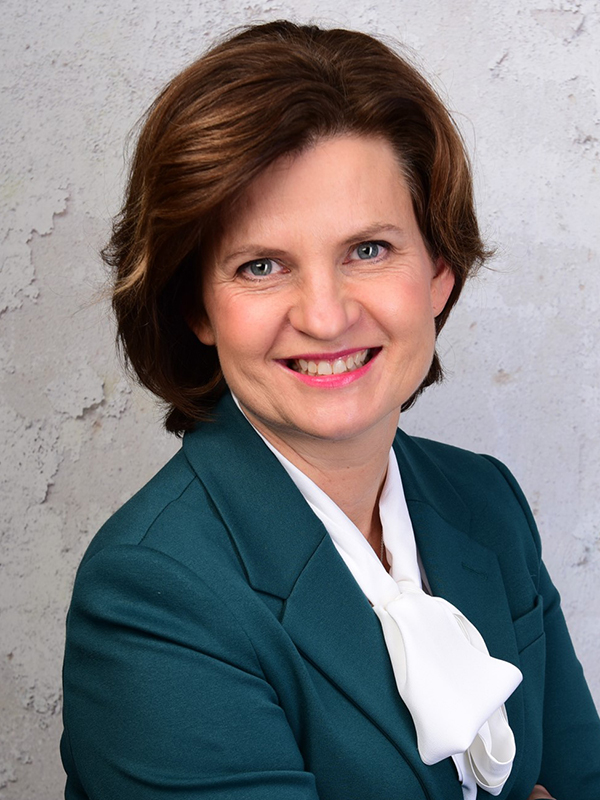
Åsa Ribbe, Principal Director Search & Patent Grant Process Products, Directorate-General 4 Corporate Services
Åsa began working at the EPO in 1997 as an examiner in telecommunications, in the field of optical communications. Throughout her career as an examiner, team manager and director in DG1 Operations, she has worked on all parts of the patent granting procedure, from classification and search to examination and opposition. Over the years, she has been active in several IP5, Cooperative Patent Classification, Trilateral classification, search and digitalisation projects. In 2022 she became Principal Director in Operations and from 01.01.2025 she moved to her current position of Principal Director for the Search and Patent Grant processes and tools. She holds a MSc in engineering physics from Chalmers University of Technology.
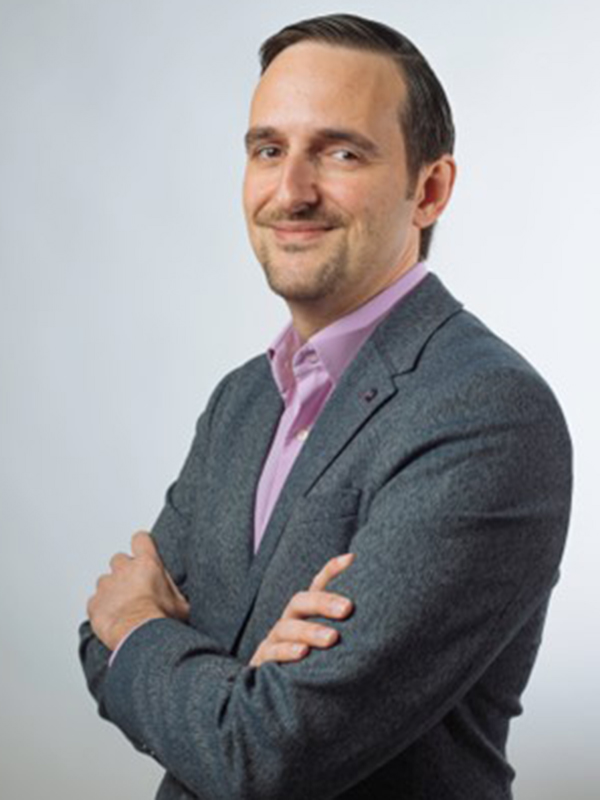
David Horat, Director of Certifications and Educational Technologies, Directorate-General 5 Legal and International Affairs
David oversees the European Qualifying Examination (EQE), the European Patent Administration Certification (EPAC) and the infrastructure of the European Patent Academy. Previously he was Director of Patent Knowledge where he led the development of delivery of data, information and knowledge products and services. He began at the EPO as a patent examiner and was key in the development of the first AI pre-search algorithm. He later headed the Prior-art Data Management department, leading a team of over 150 people across 10+ locations, delivering 1 000+ data pipelines, 2+ petabytes of data and introducing new innovative tools.Before joining the EPO, David worked as a software engineer at the European Organization for Nuclear Research (CERN) and Ericsson. David holds an M.Sc. in computer science, an LL.M. in intellectual property law and business management and has completed an executive programme in leadership.
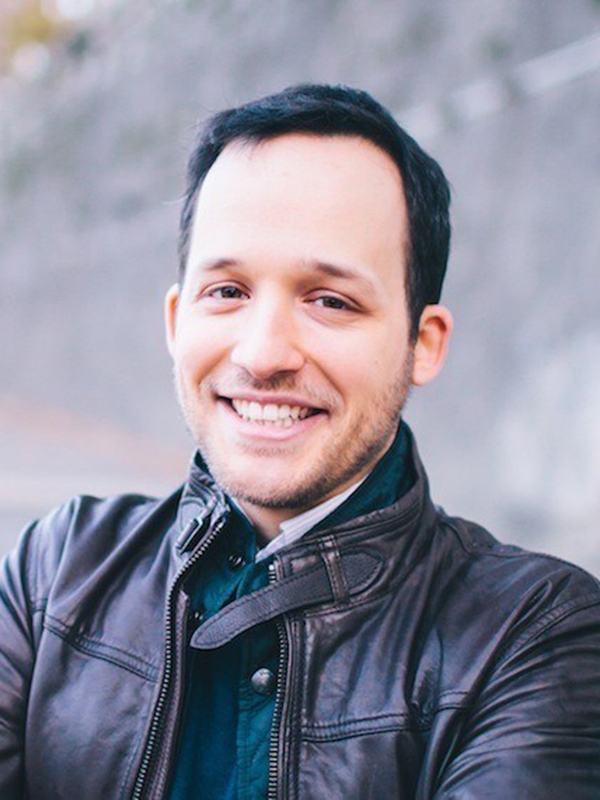
Franco Mascia, Data Scientist, Directorate-General 1 Patent Granting Process and Business Information Technology
Franco began working as a patent examiner at the EPO in 2015 and moved to data science in 2020, where he has worked on neural machine translation and the EPO's first generative AI solution for the Legal Interactive Platform. Franco holds a MSc and a PhD in computer science and prior to joining the EPO he was a post-doctoral researcher at IRIDIA, the artificial intelligence research laboratory at the Université Libre de Bruxelles.
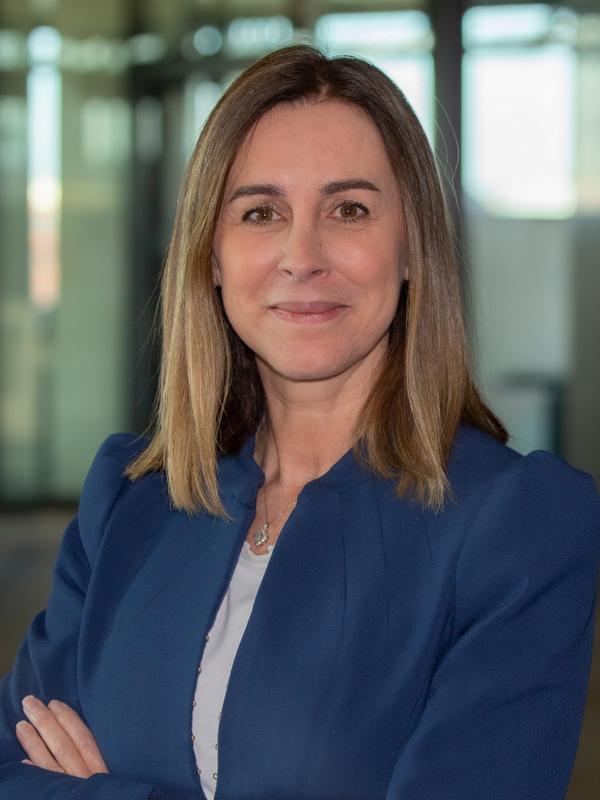
Roberta Romano-Götsch, Chief Sustainability Officer
In her role Roberta is passionate about promoting sustainability, the United Nations Sustainable Development Goals and environmental, social and corporate governance. Previously she has served as the EPO’s Chief Operating Officer in the healthcare, biotechnology and chemistry, as well as mobility and mechatronics sectors. Roberta is a chemist by education and obtained her PhD in organic chemistry from the Technical University of Munich. Prior to joining the EPO in 1997, she was R&D product manager at Procter & Gamble.
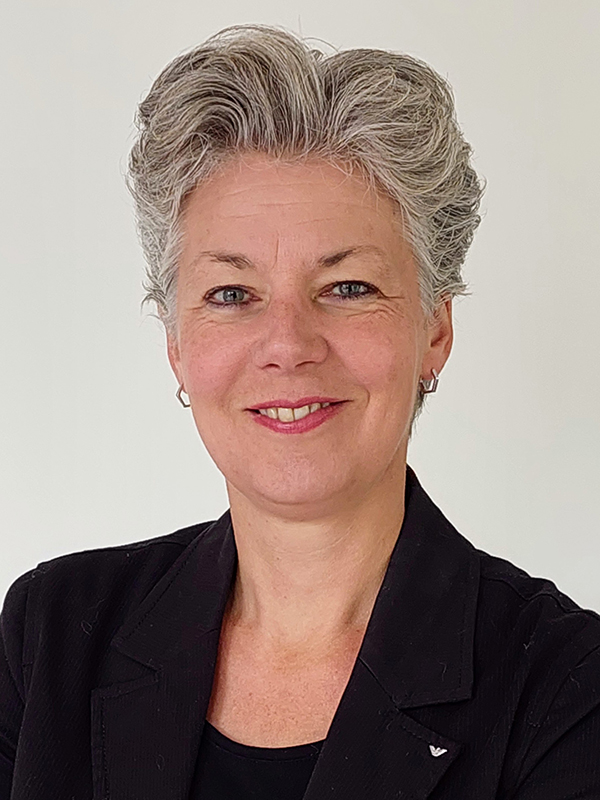
Sylvia Kok-de Vries, Director of Prospects and Studies, Directorate-General 4 Corporate Services
Sylvia joined the EPO in 2022 and is responsible for social data analytics to facilitate decision-making and policy at all levels, both internally and externally. She is particularly interested in how AI can help drive greater impact. Previously, she worked for over 20 years at Statistics Netherlands, as a manager in statistical information and data management as well as Director and Deputy Principal Director. Her contributions there included making statistical information more accessible to provide insights into social issues, policy development and decision-making, as well as the set-up of the data governance model used by Dutch civil services.
- Timeline
The competition has five key stages
17 February – 23 March 2025
Submissions are open!
Entrants must submit their proposals by 23 March, 23.59 hrs CET. Proposals must include an outline and explanation of the suggested approach as well as indicate the intended data selection, the possible model implementation and model evaluation.
24 – 28 March 2025
The jury evaluates the submissions to decide which will move on to the next round.
28 March – 28 May 2025
The coding challenge is on!
All successful candidates will be given access to the EPO's data resources, including datasets and services. For the purpose of the competition, the EPO will give participants a profile tailored for CodeFest with enhanced computation resources in the Technology Intelligence Platform.
Access will be given to:
- the Technology Intelligence Platform, the EPO’s data analysis tool offering a JupyterLab based environment, featuring a powerful computing infrastructure and providing easy access to the patent data contained in PATSTAT Global, PATSTAT EP Register and EP full-text through EPO-developed libraries.
- EPO worldwide bibliographic data (DOCDB)
- EPO worldwide legal event data (INPADOC)
- EP full-text data
- Open Patent Services
Consider that not all data resources will be needed to implement your solution. To submit a strong proposal based on the available data sources, look at which bulk data sets best suit your needs.
The coding challenge will run for just over eight weeks and code must be submitted by 28 May at 23.59 hrs CEST.
29 May – 12 June 2025
The jury will evaluate the submitted solutions and code to select the finalists.
16 June 2025
Announcement of the finalists!
Finalists are invited to the EPO CodeFest Spring 2025 prize ceremony.
First week of July
EPO CodeFest Spring 2025 prize ceremony
During the online ceremony, the winners will be announced and prizes awarded. Details of the full programme to come.
- Registration
Registration closed
Data Protection Statement (DPS)
DPS for CodeFest Spring 2025Rules of Competition (RoC)
CodeFest Spring 2025– Rules of competitionBackground
The EPO's unparalleled data resources are relied upon by a range of governmental and international organisations, such as IP Offices, the OECD, International Energy Agency (IEA), International Renewable Energy Association (IRENA) and the European Commission, as well as researchers and patent information specialists. The new Technology Intelligence Platform facilitates access to the EPO's wealth of data and patent knowledge. CodeFest is a major opportunity to democratise access to these data resources and contribute to effectively leveraging patent intelligence, fostering innovation and sustainability.
Further information
CodeFest 2023 on green plastics